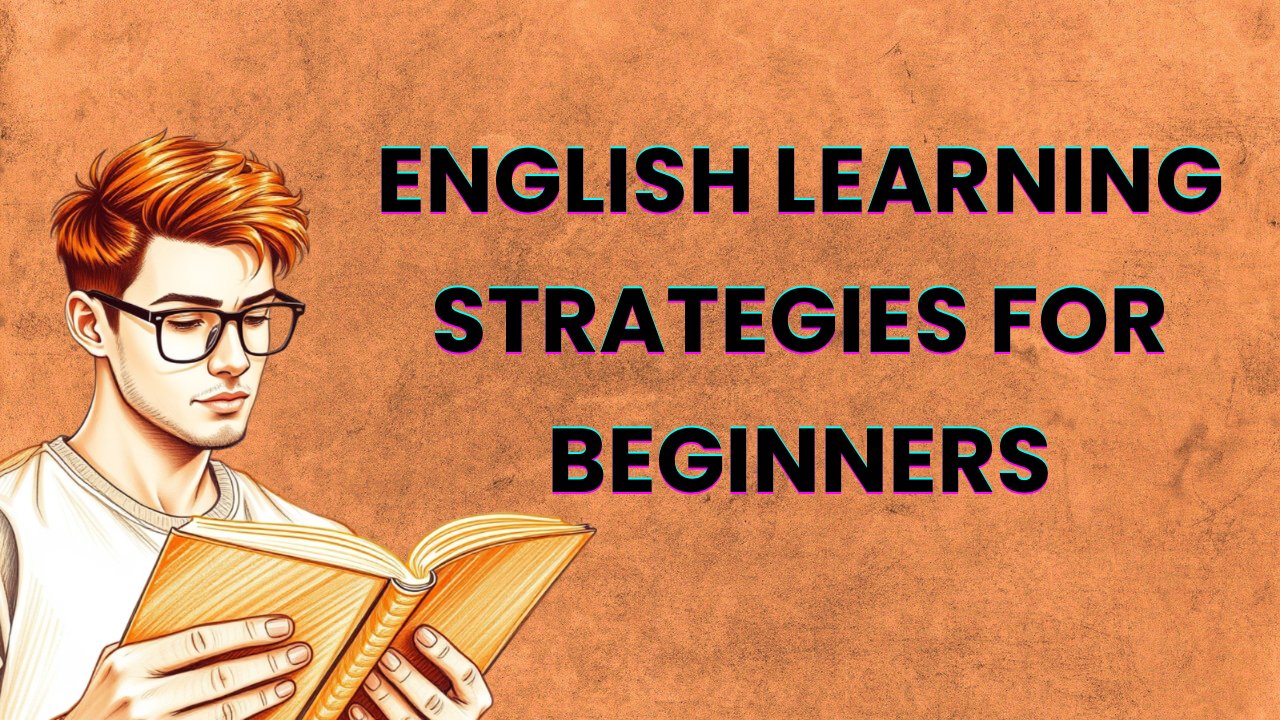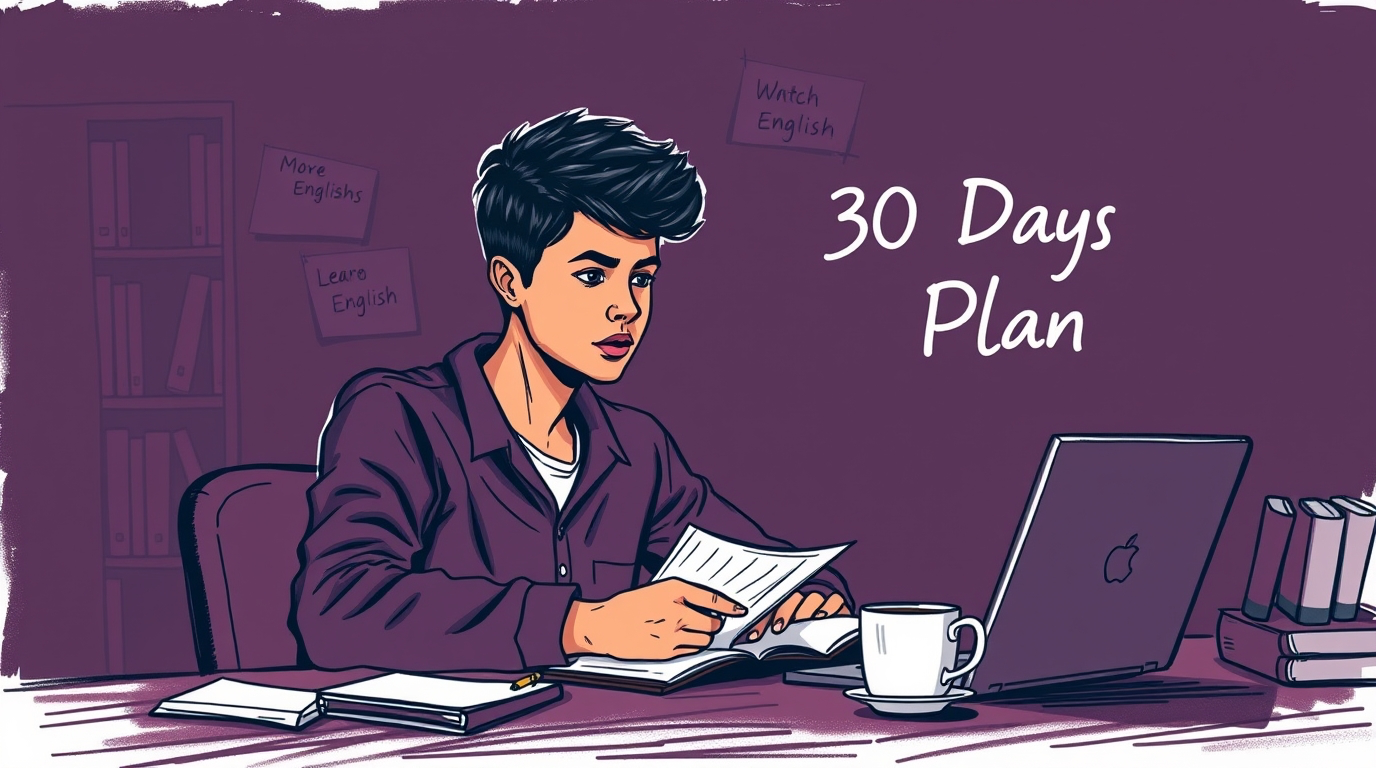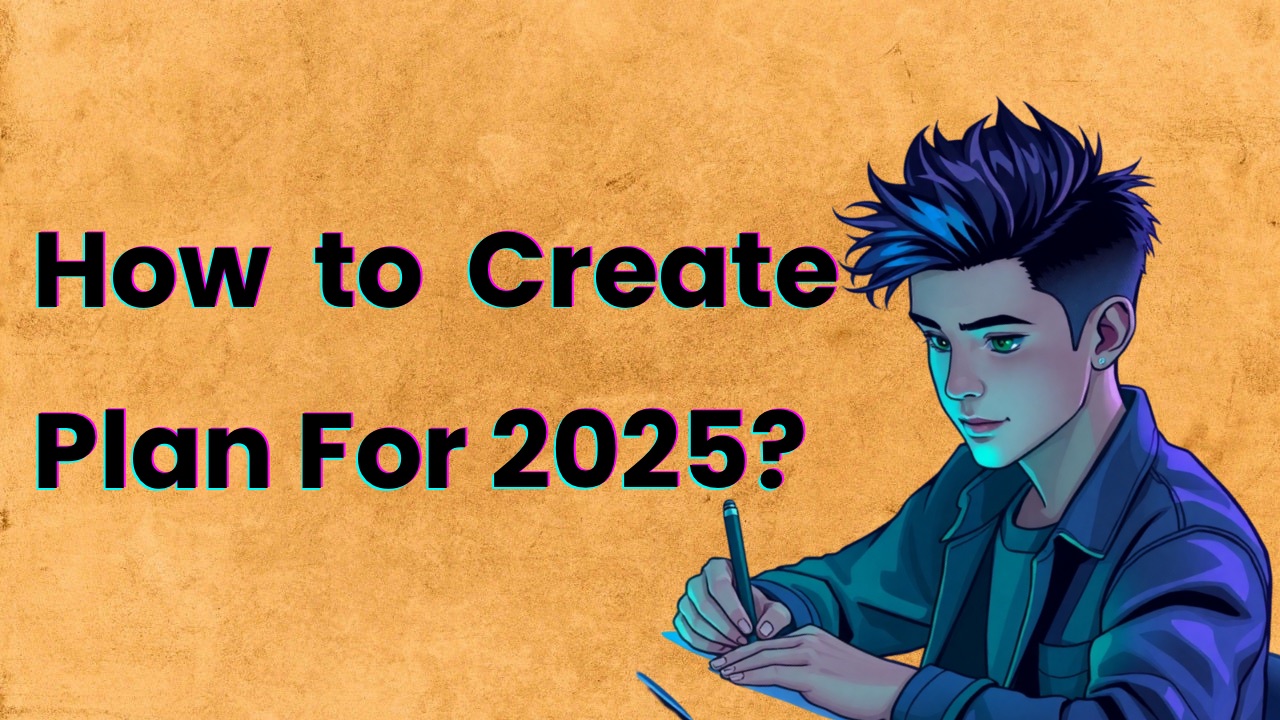Welcome to your journey of learning English! Whether you’re just starting out or looking to improve your skills, this article will guide you through some effective strategies to make the learning process easier, enjoyable, and productive. So, are you ready to improve your English? Let’s dive in!
Chapter 1: Welcome to English Learning
Hello, everyone! My name is Ben, and I’m excited to share some powerful strategies to help you learn English. Whether you’re a beginner or have some experience, these tips will help you improve your skills step by step.
Learning English is important because it opens doors to new opportunities—whether it’s traveling, finding a better job, or communicating with people from all over the world. Imagine yourself speaking English confidently! Doesn’t that sound amazing?
In this article, we’ll cover five essential strategies: listening, speaking, reading, writing, and daily practice. Each strategy will help you take small, manageable steps towards fluency. Remember, consistency is key, so let’s get started!
Chapter 2: Why Learn English?
Before we dive into the strategies, let’s first take a moment to reflect on why learning English is so important.
1. Travel
English is a global language, which means it can help you travel anywhere. Imagine ordering food, asking for directions, or even chatting with locals while traveling. It makes the experience much easier and more enjoyable!
2. Career Opportunities
English is crucial for many jobs, especially in international companies. It can help you secure better job prospects, earn a higher salary, and collaborate with people from different countries.
3. Meeting New People
Learning English allows you to connect with people worldwide. Whether online or in person, knowing English helps you communicate and learn about different cultures.
Chapter 3: Strategy 1 – Practice Every Day
The secret to learning English faster? Daily practice! Just like learning any new skill, regular practice will help you improve over time. You don’t need to spend hours—just 10-20 minutes a day can make a big difference!
Small Steps, Big Results
Consistency is the key! Every word you learn, every sentence you write, and every conversation you have gets you closer to fluency. As you practice every day, you’ll notice steady improvements in your confidence and abilities.
Create a Simple Daily Routine
Here’s a basic routine to follow:
• Morning: Listen to English for 10 minutes (a podcast, song, or story).
• Afternoon: Read something simple for 10 minutes, then write a sentence about what you read.
• Evening: Practice speaking for 5-10 minutes. Talk about your day or use new words you’ve learned.
Chapter 4: Strategy 2 – Improve Your Listening
Listening is the foundation of learning any language. It helps you understand the sounds, rhythm, and patterns of English. Here are a few fun activities to improve your listening:
1. Listen to Songs
Choose simple English songs and try singing along. Music helps you learn new words and improves pronunciation.
2. Watch Videos
Start by watching beginner-friendly English videos with subtitles. As you become more confident, challenge yourself with harder videos.
3. Listen to Podcasts
Podcasts are great for learning on the go. Listen to short episodes, and repeat sections if you don’t understand them the first time.
Chapter 5: Strategy 3 – Start Speaking English
Speaking is crucial, but many learners feel shy or afraid to make mistakes. Don’t worry! Mistakes are a natural part of the learning process. The more you speak, the more confident you’ll become.
Simple Speaking Activities:
• Talk to Yourself: Describe what you’re doing or talk about your day out loud.
• Record Your Voice: Record a simple sentence, listen to it, and notice areas for improvement.
• Practice with a Partner: Find a language buddy or practice with AI chat programs.
Role-Play Practice:
Let’spractice! I’ll start by introducing myself, and you can reply.
Example:
• “Hi, my name is Ben. What’s your name?”
• “Nice to meet you! Where are you from?”
Final Thoughts
Learning English is a journey, and with the right strategies, you’ll see amazing progress. Remember, consistency, practice, and a positive attitude are the keys to success. Start with small steps and build up from there.
Challenge:
Try practicing for 10 minutes today! You can start by listening to an English song, writing a sentence, or speaking out loud. Share your daily practice plan in the comments below!
Are you excited to start speaking English? Let’s continue this journey together!
Chapter 6: Strategy 4 – Read Simple English Stories
1. Benefits of Reading for Vocabulary Building
Reading is one of the most enjoyable ways to expand your vocabulary. When you read, you encounter new words and phrases in context, which helps you understand how they fit into sentences. The more you read, the more you will naturally pick up grammar and vocabulary.
Start with Graded Readers
Graded Readers are books designed specifically for English learners. These books use simple vocabulary and sentence structures, making them ideal for beginners. As you progress, you can gradually move on to more advanced books.
Tip: Try reading with subtitles when watching videos. This helps you match spoken words with their written form, improving both your listening and reading skills.
Interactive Activity:
Let’s practice reading a short story together. Here’s a simple story:
“John wakes up early. He wants to go to the park. He takes his dog, Max, and a ball. At the park, John throws the ball, and Max runs to catch it. They play for an hour. Then, John and Max sit under a tree and eat lunch. They are very happy.”
Questions
• Where does John go?
• What does Max do at the park?
• Who is happy at the end of the story?
By reading simple stories like this, you’ll improve your vocabulary and comprehension skills.
Chapter 7: Strategy 5 – Write in English
1. Why Writing Helps You Learn
Writing in English helps you remember new words and improves your ability to use grammar correctly. It forces you to think in English, which is a crucial step towards fluency.
2. Activities to Practice Writing
• Write a Diary: Start by writing short diary entries. Write a few sentences every day about your day, how you feel, or what you’ve learned. Example: “Today, I learned new English words. It was fun!”
• Describe Pictures: Look at pictures and describe them in English. For example, describe a beach scene: “The beach has sand and water. People are swimming and playing.” This helps you practice vocabulary and sentence construction.
Interactive Activity:

Let’s write a sentence together! Look at this picture and write one sentence about it. For example: “The park is calm.” Write your sentence in the comments below, and I’ll reply to some of them!
Chapter 8: Final Tips and Resources
1. Motivational Tips for Learning English
You’ve made great progress! To stay motivated:
• Set small goals: Try learning 5 new words a day.
• Reward yourself: Celebrate when you meet your goals.
• Don’t compare yourself to others: Focus on your personal progress.
• Embrace mistakes: They are part of the learning process!
Remember, learning English is a journey. You’re doing amazing, and every step brings you closer to fluency!
2. Useful Resources for A1 Learners
Here are some resources to help you learn English faster:
• Graded Readers: Books with simple vocabulary. Check out The Very Hungry Caterpillar or Oxford Bookworms series.
• Websites: Use websites like BBC Learning English and Talk Easy for free lessons.
• Apps: Download apps like Duolingo or Hello English to practice anytime.
• YouTube Channels: Watch English lessons on YouTube. Videos help improve your listening and comprehension.
Chapter 9: Recap and Goodbye
1. Recap of the Strategies
Let’s quickly review what we’ve learned:
1. Practice Every Day: Consistency is key!
2. Improve Your Listening: Listen to English through songs, podcasts, and videos.
3. Start Speaking English: Don’t be afraid of making mistakes.
4. Read Simple English Stories: Graded Readers are great for beginners.
5. Write in English: Keep a diary or describe pictures.
2. Final Call-to-Action
You’ve done an excellent job! If you’ve found this content helpful, don’t forget to subscribe for more lessons.
Also, we’d love to hear from you. Write “I’m learning English!” in the comments below and share your progress!
Thank you for joining us on this English learning journey. Keep practicing, and I’ll see you in the next lesson!




